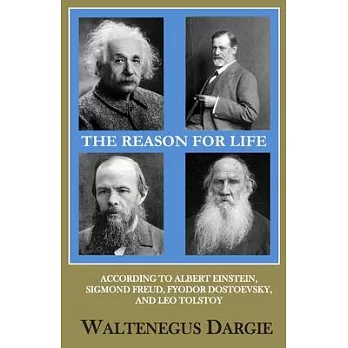Very few twenty-century scientists made as a lasting influence on modern society as Albert Einstein and Sigmund Freud. Physicists routinely use the theories Einstein developed a century ago to analyse and comprehend cosmological and quantum phenomena. Similarly, some of the vital models contemporary psychologists routinely apply in order to explain psychosexual developments and human psyches are credited to Freud. Perhaps less known to the general public is the magnitude of influence Fyodor Dostoevsky and Leo Tolstoy had on both Einstein and Freud. Einstein once declared: "Dostoevsky gives me more than any scientist, more than Gauss." Freud too ranked Dostoevsky's The Brothers Karamazov alongside the works of Shakespeare in terms of its literary significance. Tolstoy had likewise influenced Einstein and Freud. Two of the subjects, in which they held a common interested with comparable magnitude, were God and the purpose of human life. All of them, without exception, had passionately been occupied by and written and talked extensively about these subjects. The purpose of this book is to closely examine the beliefs of the quartet based on the books and articles they produced over a span of many years. The author has made a great effort to make their views as comprehensible as possible for the general reader without diluting or oversimplifying them.



 天天爆殺
天天爆殺  今日66折
今日66折 
























 博客來
博客來 博客來
博客來 博客來
博客來 博客來
博客來 博客來
博客來